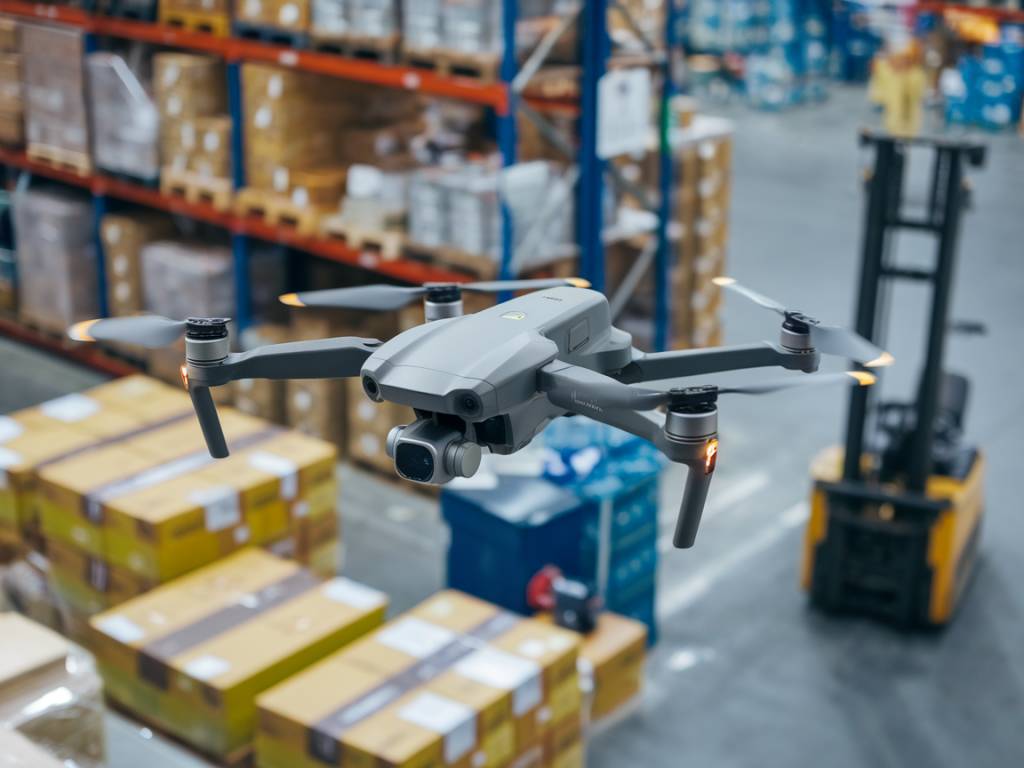The integration of drones into various sectors has been nothing short of revolutionary. Among the myriad fields eager to harness the potential of these unmanned aerial vehicles, logistics and supply chain management stand at the forefront. The question at hand is whether drones are positioned to usher in the next significant evolution in logistics. This comprehensive analysis aims to explore the practical applications, benefits, challenges, and future outlook of drones in the logistics domain.
The Evolution of Drones in Logistics
The concept of using drones for logistical purposes is not entirely new. However, advancements in drone technology, coupled with increased interest from industry giants, have brought this notion to the cusp of mainstream acceptance. Traditionally relegated to military and hobbyist applications, drones have evolved in their capabilities, including improved flight stability, payload capacity, and extended battery life.
Major players in the logistics industry, such as Amazon with its Prime Air service, have been pioneers in exploring the feasibility of drone delivery systems. These efforts indicate a broader trend toward the adoption of drones in last-mile delivery, a crucial element of the supply chain.
Practical Applications
Drones offer extensive practical applications within the logistics sector. Some of the most notable include:
- Last-Mile Delivery: One of the most promising applications for drones is in last-mile delivery. Drones can deliver packages to customers’ doorsteps, reducing the reliance on traditional delivery methods and circumventing traffic congestion in urban areas.
- Inventory Management: In large warehouses, drones can expedite inventory management processes. Equipped with cameras and RFID technology, they can quickly scan and update inventory records, minimizing human error and increasing efficiency.
- Emergency Response: In emergencies, drones can deliver essential supplies like medical kits, food, and water to inaccessible or hazardous areas swiftly.
- Surveillance and Monitoring: Drones can also be utilized for security surveillance around warehouse and distribution centers, enhancing security and monitoring perimeters effectively.
Benefits of Drones in Logistics
Integrating drones into logistics operations offers numerous benefits:
- Speed and Efficiency: Drones can reduce delivery times, especially in congested urban environments where traditional transport may be slower.
- Cost Reduction: Over time, drones can lead to cost savings by reducing the need for human labor and cutting down on fuel expenses.
- Environmental Impact: Drones can contribute to reducing carbon footprints as they are typically battery-powered and emit less pollution compared to fossil fuel-based delivery vehicles.
- Improved Access: Drones can reach remote or difficult-to-access areas more efficiently, ensuring that deliveries can be made where traditional vehicles might struggle.
Challenges and Considerations
Despite the promising outlook, there are several challenges and considerations that need to be addressed:
- Regulatory Hurdles: One of the major obstacles is the regulatory environment. Different countries have varying regulations on drone operations, and aligning these with commercial delivery models remains a complex task.
- Safety Concerns: Ensuring the safety of drones in populated areas is crucial. Technical malfunctions, weather conditions, and potential collisions pose significant risks.
- Limited Payload Capacity: Currently, drones have limited carrying capacity, which restricts the types and sizes of goods that can be transported.
- Public Acceptance: Public perception and acceptance of drones flying in residential areas are aspects that companies need to consider, addressing concerns related to privacy and noise.
Future Outlook and Potential Innovations
The future of drones in logistics holds immense potential, marked by ongoing innovations and anticipated developments:
- Technological Advancements: Future drones are expected to boast enhanced battery life, increased payload capacities, and sophisticated navigation systems using AI and machine learning.
- Regulatory Evolution: As the technology matures, regulatory frameworks will likely evolve to facilitate the safe and secure integration of drones into commercial operations.
- Integration with Other Emerging Technologies: The synergy between drones and other emerging technologies, like autonomous vehicles and blockchain, could lead to substantial improvements in tracking, transparency, and efficiency.
- Urban Air Mobility (UAM): The concept of urban air mobility could see drones playing a key role in the transformation of city transport systems, contributing to more dynamic and flexible logistics networks.
Case Studies
Several case studies illustrate the effective deployment of drones in logistics:
- Amazon Prime Air: Amazon has successfully conducted multiple test flights for its Prime Air service, which aims to deliver packages up to five pounds within 30 minutes. These trials underscore the practical viability and potential customer benefits.
- Zipline in Rwanda: Zipline, a medical product delivery company, has revolutionized healthcare logistics in Rwanda by using drones to deliver blood and medical supplies to remote health centers. This initiative has significantly reduced delivery times and saved numerous lives.
- UPS Flight Forward: UPS’s drone delivery service has focused on healthcare logistics, delivering medical samples and supplies within hospital systems. The program has demonstrated the efficiency of drone deliveries in critical, time-sensitive contexts.
In summary, drones are poised to become a transformative force in the logistics industry. Despite regulatory and technical challenges, their potential to enhance delivery speed, reduce costs, and minimize environmental impact makes them a compelling option. As technological advancements continue, and regulatory environments evolve, the integration of drones into logistics networks is not just a possibility but a likely reality.
Summary: Drones in logistics offer significant promise in enhancing delivery efficiency, reducing costs, and mitigating environmental impacts. While regulatory and technical challenges remain, advancements and evolving regulatory landscapes point towards a future where drones play a crucial role in supply chain management.




